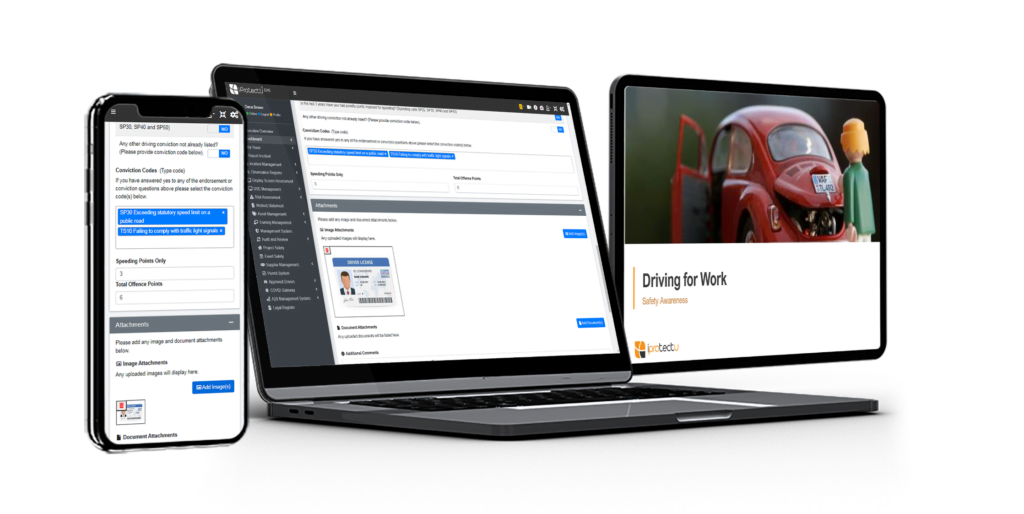Overview
The latest Government figures show 1,695 people lost their lives on roads in the UK in 2023.
Road Safety Week 2024 is an annual event dedicated to promoting road safety awareness and advocating for safer roads and responsible driving behaviour. This week-long observance aims to reduce road accidents by encouraging individuals, communities, and organisations to prioritise road safety measures. It emphasises the importance of responsible driving, pedestrian safety, and the need for improved road infrastructure.
Road Safety Week has a history dating back to the mid-20th century. It was initiated to address the rising number of road accidents and casualties and has evolved into a global event.
Employers, do your employees drive as part of their job?
Conduct a Risk Assessment
Completing a driving for work risk assessment is vital for ensuring the safety of employees and other road users.
It involves identifying potential hazards like traffic congestion, poor weather conditions, and driver fatigue, as well as evaluating the severity of potential risks. By conducting a thorough risk assessment, employers can implement effective control measures to mitigate these risks. iProtectU Risk Assessment Software can help organisations identify and manage potential risks on the road more efficiently.

Provide Training
Driving for work safety training is crucial for ensuring the safety of employees and others on the road. It provides drivers with essential knowledge and skills to handle various driving situations, including adverse weather conditions, traffic congestion, and emergency maneuvers. iProtectU Driver and Fleet Management Software provides driver licensing, fleet asset management and driver training which can help employees improve their awareness of potential hazards on the road and enhance their decision-making abilities.
Essential Guidelines to ensure your Safety while Driving
Vehicle Maintenance
Ensure your vehicle is in top condition by conducting regular inspections or bringing it to a mechanic. Check tire pressure regularly to prevent blowouts. Monitor fluid levels (oil, coolant, brake fluid) and ensure to top up as needed. Make sure all lights and signals are functioning.
Driving Techniques
Be aware of your surroundings at all times and anticipate potential hazards. Always adhere to speed limits. Avoid distractions such as using your phone, eating, or using cosmetics while driving. Maintain a safe following distance from the vehicle ahead. Signal before changing lanes and don’t forget to check blind spots. Adjust your driving for different weather conditions. Avoid driving when tired or if you haven’t slept the night before. If you’re feeling drowsy, pull over and rest.
Safety Equipment
Always wear your seat belt and ensure passengers do too. Familiarise yourself with your vehicle’s airbag system. Keep an emergency kit in your vehicle, including first aid supplies, a flashlight, jumper cables, and a tire repair kit.
Workplace Policies
Familiarise yourself with your company’s driving policies, including vehicle use guidelines, expense reimbursement, and accident reporting procedures. Ensure your vehicle has adequate insurance coverage, including commercial auto insurance if applicable.
Driving safely is a shared responsibility. By following traffic laws, being mindful of other road users, and staying alert, the risk of road traffic accidents can be significantly reduced.








